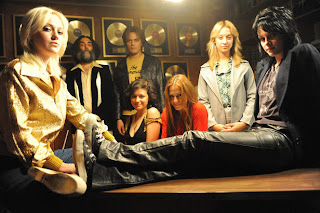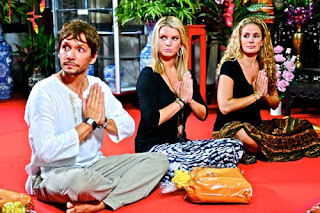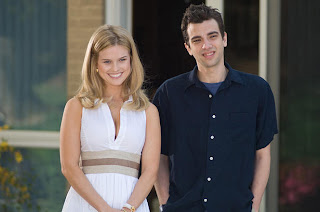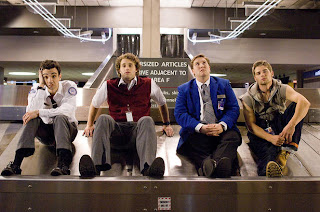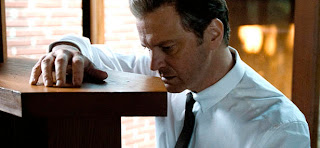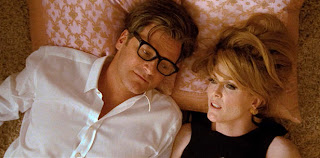 Children by the million sing for Alex Chilton when he comes 'round
Children by the million sing for Alex Chilton when he comes 'round
They sing "I'm in love. What's that song?
I'm in love with that song."
The Replacements
Alex Chilton was born in 1950 in Memphis, Tenessee. While remaining a mostly conservative city, Memphis became the recording base of many prominent performers in the early years of rock and roll, including Elvis Presley, Johnny Cash, Otis Redding, Wilson Pickett, and Booker T. and the MG's. Chilton jumped into the music scene very early, joining his first group The Box Tops when he was fifteen. While he would become a legendary figure in small circles of music fans for his later work, Chilton's only real commercial success came with The Box Tops. His raspy vocals on "The Letter" helped make that song an international chart-topper in 1967; he may have been only 16, but he sounded very old for his years.
The Box Tops fizzled out in 1970, and after a brief stay in New York where he honed his guitar-playing skills, Chilton returned to Memphis and spent his time hanging out in Ardent Studios. There he met guitarist Chris Bell and drummer Jody Stephens, fresh from the band Rock City, along with a prominent local bass player named Andy Hummel. Bell and Chilton particularly saw eye-to-eye, sharing an interest in the more aggressive side of the British Invasion as well as soul and folk rock. Together they would form the group Big Star. Their 1972 debut album
#1 Record, with nearly all the songs co-written and sung by Chilton and Bell, contained a number of stand-out songs. "When My Baby's Besdie Me" is a power pop classic, "Don't Lie to Me" is a screaming rocker, and "Thirteen" and "Watch the Sunrise" are irresistible acoustic ballads. In a perfect world, these songs would all be well-known staples of classic rock radio, like the work of many inferior acts from the same time period. However, their recording label Stax botched the distribution and the promotion, and the album fell through the cracks. The most well-known song from the album at this point is "On the Street," because Cheap Trick's cover of it was used as the theme song for
That 70's Show.
After much infighting, Bell left the band, and the subsequent record
Radio City was recorded as a trio with Chilton clearly in charge. Sonically this album went beyond the first album, bringing a certain edginess and uneasiness into the sound which proved to be quite effective -- at least for the few thousand people lucky enough to get their hands on a copy. The album contained another power pop classic in "September Gurls," while songs like "Life Is White," "Mod Lang," and "Daisy Glaze" are the compelling work of a talented group audibly struggling to hold things together. But yet again, the dynamics of the recording industry conspired against them. Chilton and Big Star had earned considerable critical praise and a very loyal cult following, but they had nothing at all to show for it.
If
Radio City was the work of a group teetering on the edge,
Third/Sister Lovers found Big Star, and especially Chilton, fallen over. Their record label was collapsing and taking them with it, and Chilton and Stephens (Hummel had left at this point as well) were cutting records while they could. They had no hope for getting an audience, so they went about things as though they would be the only listeners. While containing some positive songs like "Thank You Friends,"
Third/Sister Lovers is dominated by the harrowing dissonance of songs like "Kangaroo" and "Holocaust." I would argue that this album is not quite as good as its predecessors, and that Sam Phillips' album
Omnipop is a higher overall quality example of the kind of album that happens when everything falls apart and the rules no longer apply. But it certainly has its strong moments, and served as a fitting finale for a band that deserved much better.
Somehow, the story didn't quite end there. Chilton moved to New Orleans and embarked on a very reclusive and low-key solo career, and Bell unfortunately died in a car accident in 1978, but Big Star's legacy only grew. Like The Velvet Underground before them, Big Star didn't sell many records but wound up leaving a disproportionally large mark on subsequent generations of musicians. R.E.M. have always cited them as a big influence, and bands like The Bangles and Cheap Trick have covered their songs. The Replacements even wrote and recorded a song called "Alex Chilton" -- ironically, you're much more likely to hear this song on the radio than any Big Star songs. Eventually Chilton would re-embrace his past, participating both in the occasional Box Tops reunion tour and in a revised Big Star with Jody Stephens and two members of The Posies. This quartet has toured fairly regularly since the early nineties, and recorded an album called
In Space together in 2005. It's not quite of the same caliber as the earlier Big Star recordings, but it was good to hear Chilton singing again and sounding like he was enjoying himself. The band was set to play at the SXSW Festival this weekend, but sadly Alex Chilton suffered a fatal heart attack yesterday. He was 59.
It's tough to do justice to a man whose body of work has never been done justice among mainstream rock audiences. The fact that you're still more likely to hear Foghat than Big Star on classic rock radio speaks mouthfuls about the inadequacy of the format. But we don't need radio to find out about anything anymore. I couldn't find any footage of the classic Big Star line-up on YouTube, but people have posted many of the recordings.
#1 Record and
Radio City are packaged as one CD these days, and I'd definitely consider that required listening. A box set was released last year as well. And to be fair, The Box Tops were a good band too. "The Letter" is certainly memorable, and "Cry Like a Baby" and "Soul Deep" were decent singles as well.
Children by the million may have never really sung for Alex Chilton, but I can't argue with anybody who's in love with his songs.
"The Letter"
The studio version of "When My Baby's Beside Me"
A live performance of "September Gurls" from last year
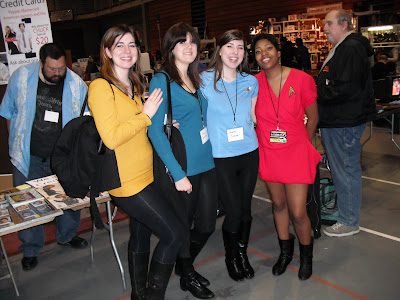 I-CON returned! And not just chronologically: I-CON 29 was held at SUNY Stony Brook, its home for all the years I've been going, except for last year. Having it back at its traditional home was great, obviating the constant driving from hotel to campus and back to go to different events. And, of course, this is the event that proves what the Arrogant Worms sang: It's great to be a nerd.
I-CON returned! And not just chronologically: I-CON 29 was held at SUNY Stony Brook, its home for all the years I've been going, except for last year. Having it back at its traditional home was great, obviating the constant driving from hotel to campus and back to go to different events. And, of course, this is the event that proves what the Arrogant Worms sang: It's great to be a nerd.  I-CON is dedicated to science fiction and fantasy, and the convention covers these and other areas of fandom. I-CON 29 had plenty of sci-fi, medieval fantasy, comic books, anime, horror, costuming (both created by fans and sold by vendors), gaming, video games (plenty of new stuff, though one dealer had games for the Super Nintendo), movie posters, original art, jewelry, and some Twilight items (but more on the backlash to Twilight). Attendees could wander the very full dealer's room and find elaborate costumes, rare and common dvds (one dealer even had bootlegs; I got a copy of a performance of Evil Dead: The Musical), innumerable dice, posters, and much more.
I-CON is dedicated to science fiction and fantasy, and the convention covers these and other areas of fandom. I-CON 29 had plenty of sci-fi, medieval fantasy, comic books, anime, horror, costuming (both created by fans and sold by vendors), gaming, video games (plenty of new stuff, though one dealer had games for the Super Nintendo), movie posters, original art, jewelry, and some Twilight items (but more on the backlash to Twilight). Attendees could wander the very full dealer's room and find elaborate costumes, rare and common dvds (one dealer even had bootlegs; I got a copy of a performance of Evil Dead: The Musical), innumerable dice, posters, and much more. There were several celebrities throughout the convention. In addition to the celebs set up in the Dealer's Room, I also ran into author Peter David at a panel on, of all things, Mad Magazine. I also got a picture of and autograph from Charisma Carpenter, star of Buffy the Vampire Slayer and Angel.
There were several celebrities throughout the convention. In addition to the celebs set up in the Dealer's Room, I also ran into author Peter David at a panel on, of all things, Mad Magazine. I also got a picture of and autograph from Charisma Carpenter, star of Buffy the Vampire Slayer and Angel.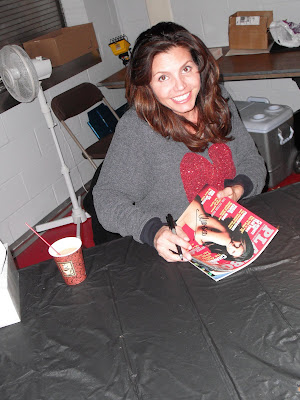 The panels were terrific. I learned "How to Achieve World Domination," found out about "Protecting Your Secret Identity," (who gave that panel, anyway?) and heard the competition "Mine Is An Eeeeeeevil Laugh!" I also gave my fourth lecture on "Super(hero) S&M!" and attended several panels on Gamer Sex (not an oxymoron). There was a late-night Cosplay Burlesque performance; I'll never look at Link the same way again... I also attended several panels on Gamer Sex (not an oxymoron) and gave my fourth "Super(hero) S&M!" lecture.
The panels were terrific. I learned "How to Achieve World Domination," found out about "Protecting Your Secret Identity," (who gave that panel, anyway?) and heard the competition "Mine Is An Eeeeeeevil Laugh!" I also gave my fourth lecture on "Super(hero) S&M!" and attended several panels on Gamer Sex (not an oxymoron). There was a late-night Cosplay Burlesque performance; I'll never look at Link the same way again... I also attended several panels on Gamer Sex (not an oxymoron) and gave my fourth "Super(hero) S&M!" lecture.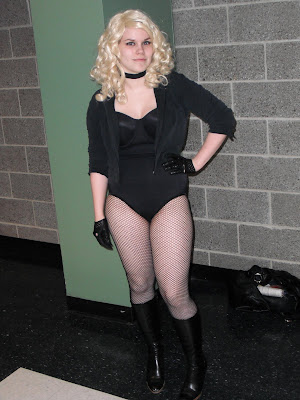
 I-CON 29 was tremendous fun. I got there as everything was starting and left when they kicked us out of the last panel because the building was closing. Too bad I have to wait another year until I can go again!
I-CON 29 was tremendous fun. I got there as everything was starting and left when they kicked us out of the last panel because the building was closing. Too bad I have to wait another year until I can go again!









